Watch Out! They're Coming!!
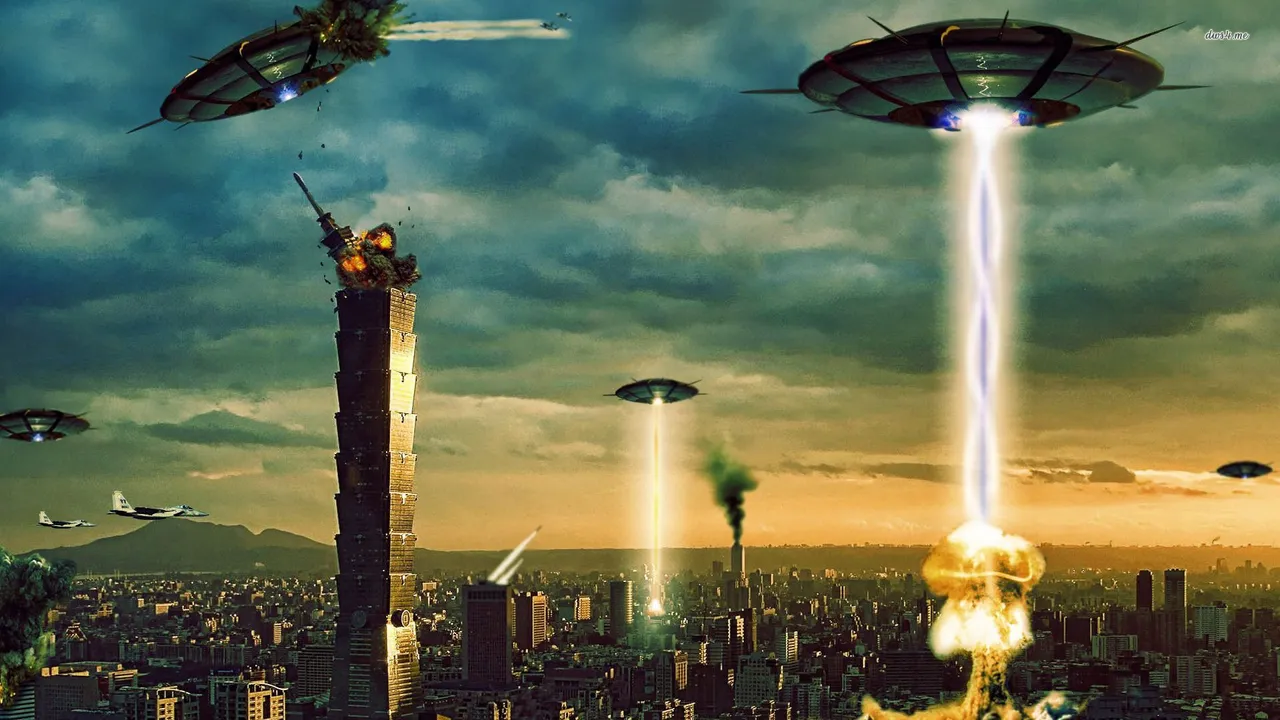
The 1930's were a difficult period for a lot of people. The Great Depression which reached from 1929 to 1939, stole employment from countless Americans and left the banks in shambles. Germany was expanding at a rapid pace under Hitler's rule, scaring anyone in his path. The Hindenburg, a commercial German passenger airship that departed from Frankfurt, Germany, on the evening of May 3, 1937, crashed in New Jersey after passengers observed a gas leak which quickly spread and burst the ship into flames, killing 35 people. People were behind on their bills. The stock market crash left many people penniless and not very optimistic. President Roosevelt saw the despair in the people and could tell that it wasn't anger they were experiencing, but a genuine fear of what was going to happen. "The only thing we have to fear is fear itself" were leading words of Franklin D. Roosevelt's presidential election speech. People were afraid and many of them assumed that things were going to continue to go downhill from there.
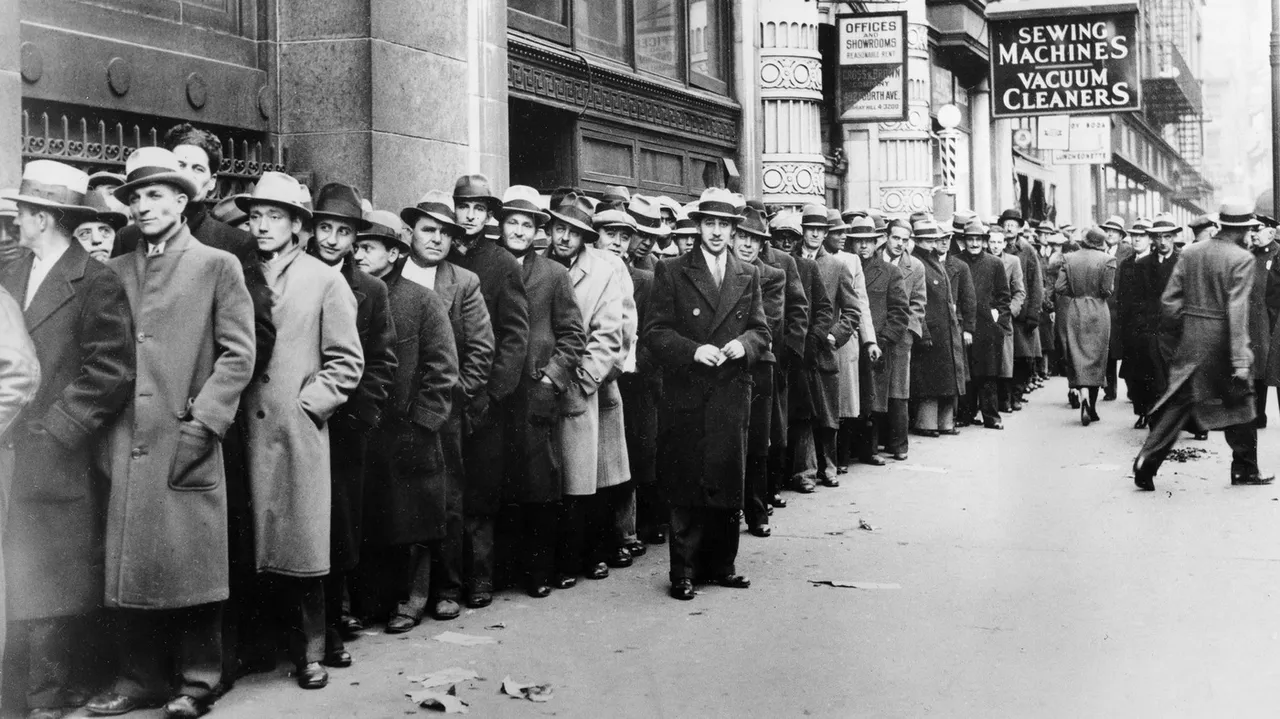
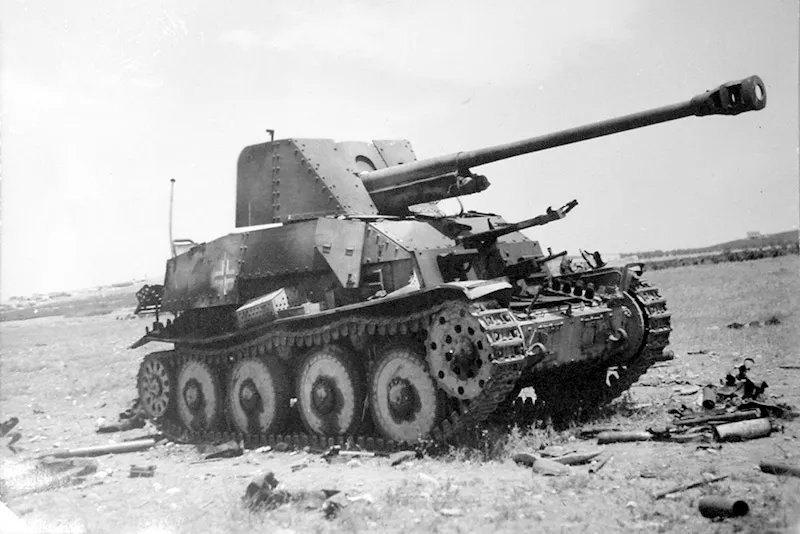
People didn't have enough money to pay their bills, but almost every American had a radio. The radio became a sort of lifeline that many had as a source of entertainment, and was also their only way to gauge what was happening in the outside world. Broadcast after broadcast brought what seemed to be a never-ending tale of what was going wrong, because there wasn't much going right to talk about. Most news that came through was bad news. Some stories were so bad they were unbelievable, but unfortunately were a real description of where history was heading. Then, the Munich Crisis came. It was a settlement agreement that was going to allow Hitler to expand Germany into central Europe or more specifically, western Czechoslovakia. Roosevelt wrote to Adolf Hitler to maintain peace and people at this point were glued to their radios waiting to hear anything they could about what was going to ensue. One month later, on Sunday, October 30th, 1938, one of the weirdest things in history took place that caused mass hysteria and people to abandon their homes and even caused some to flee into the mountains: an alien invasion.

The night before Halloween has always been mysterious. In some parts of the United States such as Michigan (where I’m from,) it has even been given the unofficial title of "devil's night," because it's been known for being a night of mischief. It's full of practical jokes and even in some cases, acts of vandalism. This, paired with superstition and ghost tales shared around this time, tend to keep people naturally on edge as the night approaches. Unlike previous devil's nights however, this night would bring authentic terror to some and caused a wide spread panic in general, all of which was due to unfortunate timing and people being in the wrong state of mind.
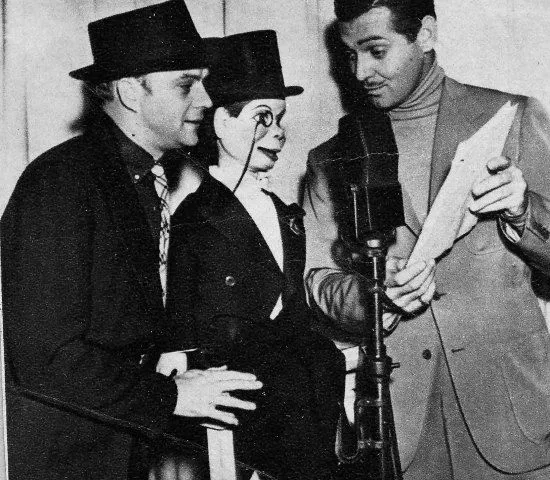
As the afterhours came, people started to settle into their chairs, and turned on their radios to tune into one of the many Halloween themed shows that were programmed for that night. The most popular choice for that hour was a show called "The Chase and Sanborn Hour," by a famous ventriloquist, Edgar Bergen. As the first part of the show transitioned into a musical number however, many people became bored and started dial twisting through the different channels until they found George Orson Welles's radio drama; "The War of the Worlds" which was a retelling of H G Wells’s book. When people switched stations though, it was already twelve minutes into the show and they missed the disclaimer at the start stating that it was just a drama. Shortly after people tuned in, a bizarre emergency broadcast interrupted the show and stated that a scientist from Princeton University reported that there was activity coming from Mars. Jet-like flames were shooting outwards and something seemed to be coming towards earth. Later, another emergency broadcast came on announcing that a meteor had landed on a farm in Grover’s Mill, New Jersey. By this time, people who had missed the beginning of the show, were eagerly waiting for more information about what had just happened and were trying to gauge the seriousness of the recent string of unlikely events.
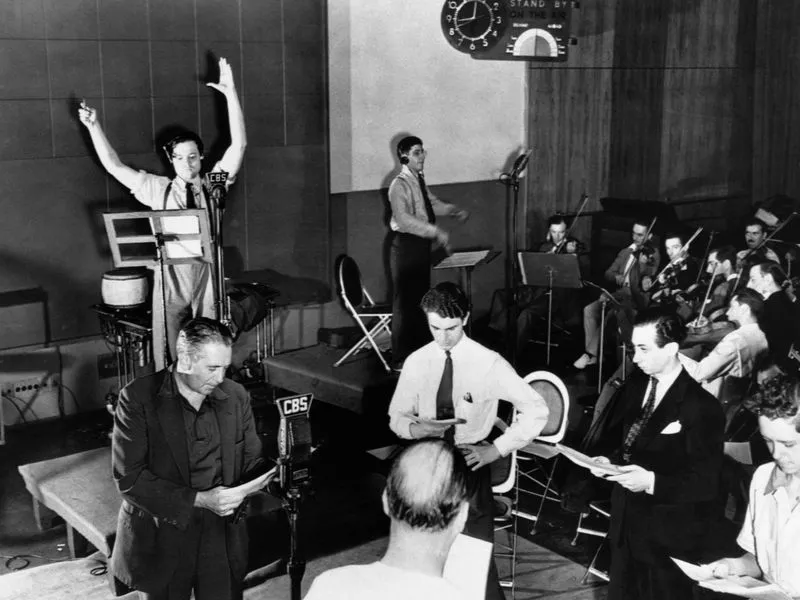
Talk about Mars wasn't uncommon. In fact, in the 1930's, there was only a fraction of the amount of light pollution that we have nowadays and Mars could easily be seen when you looked up to the night sky. Because of its similarities with the earth, people have always wondered whether life could exist on it. Because of how intriguing Mars was, Giovanni Schiaparelli, an astronomer, made an observation of faint lines that carried along its surface and called those lines "Canali" which meant channels. When his work was translated however, that word changed from channels, into canals. Canals were popular during those times, such as the Panama Canal which was finished in 1914. This mistranslation, led people to start believing that if Mars had canals, somebody must have built them, hence: Martians. In addition to this, Christian Science Monitor Center, just 3 days prior to the “War of the Worlds” show, made a statement that it was highly probable that Mars did in fact have life on it.
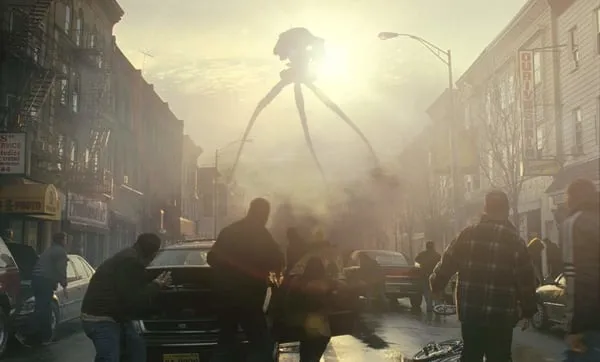
"Ladies and gentlemen, due to circumstances beyond our control, we are unable to continue the broadcast from Grover’s Mill. Evidently there's some difficulty with our field transmission." These were the first words the radio listeners heard after the sounds of screaming which abruptly turned into a dead silence. At this point in the broadcast, people either knew it was a show and sat back in their chairs, or they were terrified from the things they were hearing. The radio announcer had just informed them that a black smoke came out of what seemed like a vessel and tentacle-like creatures came out spraying observers with something. Shortly after that, another "emergency" broadcast stated that the military had reached the site to find it was littered with corpses and describes a creature reaching out to the height of the trees. Then, which most likely was the point people started to panic, a familiar voice came on the radio telling people to keep calm. Kenneth Delmar, an actor in both radio and film, was told by Wells to do his best impersonation of President Roosevelt which he delivered the following passage:
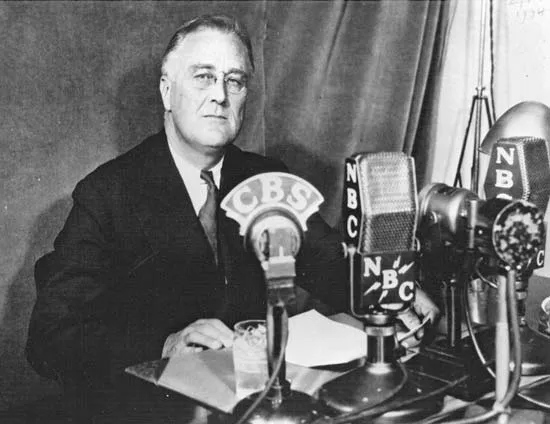
"Citizens of the nation: I shall not try to conceal the gravity of the situation that confronts the country, nor the concern of your government in protecting the lives and property of its people. However, I wish to impress upon you -- private citizens and public officials, all of you -- the urgent need of calm and resourceful action. Fortunately, this formidable enemy is still confined to a comparatively small area, and we may place our faith in the military forces to keep them there. In the meantime, placing our faith in God, we must continue the performance of our duties each and every one of us, so that we may confront this destructive adversary with a nation united, courageous, and consecrated to the preservation of human supremacy on this earth. I thank you."
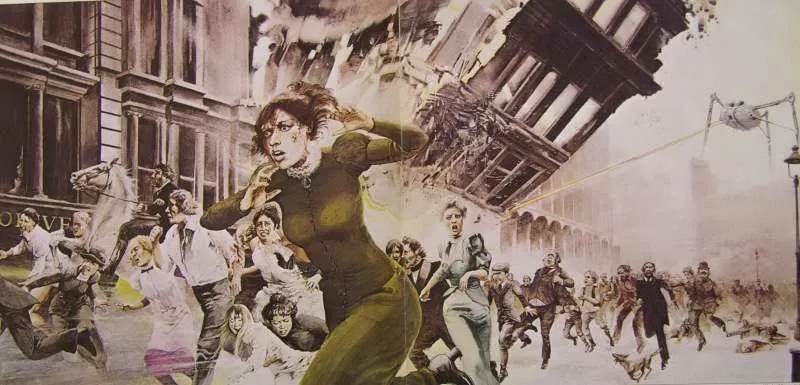
As Wells show continued, more people were told by friends and family to tune into the station. Some people heard American soil was being invaded by the Germans because of what was happening in Europe. Some people believed that there was legitimately an invasion from Mars. In either case, as the show reached its halfway point, people were reported to already have been evacuating their homes and causing congestion on the roads. One woman was said to have rushed into a church during a sermon and yelled that the end of the world was coming. Anyone who believed it was real, would have been frantic by this time because the impersonation of President Roosevelt sold the idea that there was a crisis happening. Based on the broadcasts, large machine-like automatons were storming across the nation, or perhaps, even the world. Thirty minutes into the show, Wells had to announce that this was in fact, just a show, but by then, people were already "occupied" by filling their cars with their belongings and leaving the big cities. In the small city of Concrete, Washington, an untimely power outage plunged the city into darkness which added to the belief something was wrong and caused the citizens to flee into the mountains. People claimed to actually smell gasses and see things flying around which caused more and more people into panic. Luckily, at the end of the show, Orson Wells did a final announcement informing everybody that it wasn’t an actual event, but just a Halloween-spirited show. So many people after hearing that announcement couldn't have been more relieved.
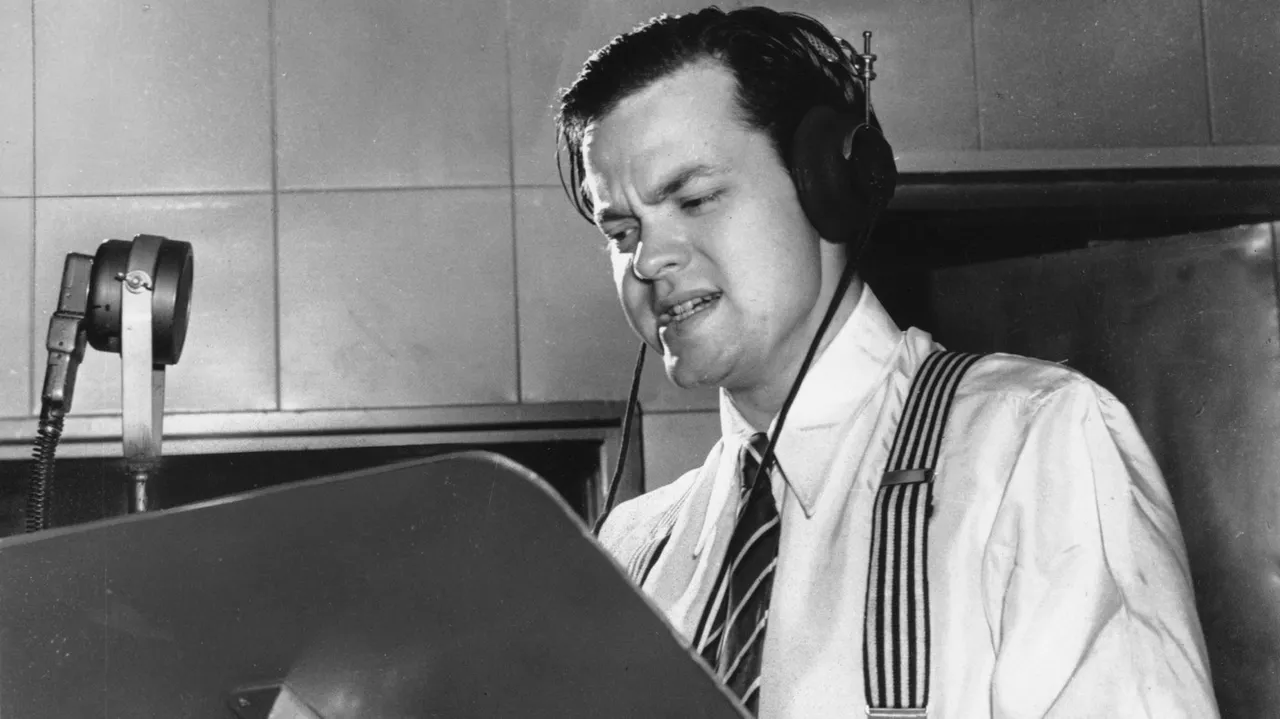
George Wells would have never have known the magnitude of what he did until after the performance was finished and police officers forced their way into the room where the recording was taking place. According to the reports, the switch boards were being bombarded all night with calls coming in about disturbances happening at Grover’s Mill and all the surrounding cities. People filed lawsuit for nervous damage. Several people wrote letters either complimenting the performance for its brilliance and believability or damning it for its unethical and irresponsible use of the radio. In either light, George Orson Wells, had made a place for himself in history for pulling one of the most convincing hoaxes performed on live radio. To this day, you can visit Grover’s Mill and see a memorial statue depicting an event that never happened.
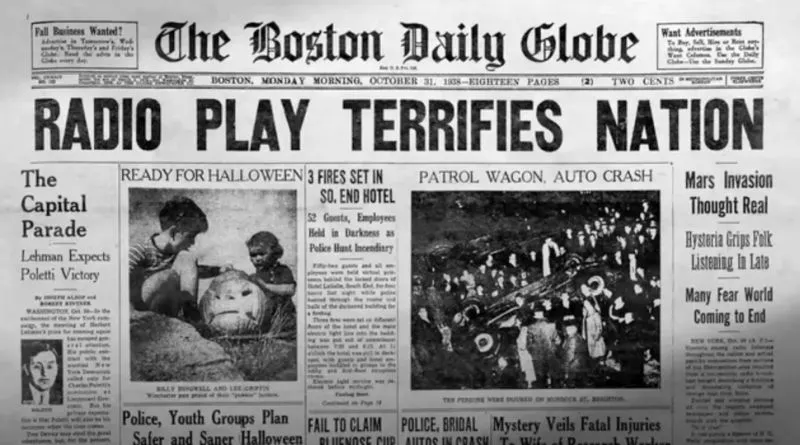
Perception is Reality
The only reason George Orson Wells' show could have caused such a kerfuffle, was due to timing and priming. People in 1938 had already been conditioned to expect bad news via the airwaves and were shown that terrible things were really happening out there in the world. An emergency broadcast wasn't that uncommon because of all of the things happening, so people wouldn't have been the wiser that this was just a big joke. Many people only heard a small portion of the hysteria which then, caused them to be misled into thinking that it was really a German invasion. Whether it was Hitler or Martians attacking Grover’s Mill, was irrelevant because either one would have meant certain doom for anyone listening to the program.
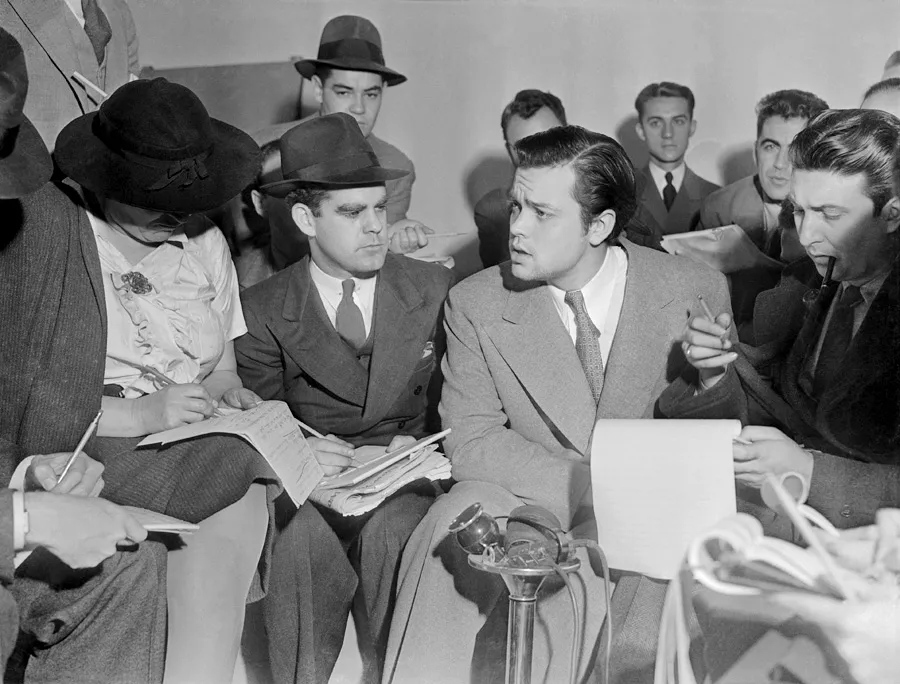
By the time that people started talking about what was going on amongst themselves, people started swearing that they could actually smell smoke and see lights from things flying around. The story was starting to become more believable to people who were at first skeptic. Everyone became so enthralled in what was happening that they became hyper-sensitive to what was going on, and started confusing mundane occurrences as being a result of the invasion. If someone looked out their house windows and saw that the streets were full of cars, that must have meant that people were trying to evacuate the city. If there weren’t any cars on the street, that must have meant that people had already packed up their bags and left. It became a lose/lose scenario because people would have seen whatever they needed to, to confirm their belief in the lie.
Whenever you believe in something and start looking for evidence, you’ll always find it even if it doesn’t exist. Have you ever heard a ghost story or seen a scary movie before and find yourself constantly looking over your shoulder as if something will jump out and scare you? What about when you hear about something for the first time and all of a suddenly it starts appearing everywhere around you? The name for this is “confirmation bias,” and it’s very difficult to stay objective when you are only confirming and never denying results. Scientists know that having an opinion in an experiment can be dangerous because they might inadvertently see the results as being more in favor of what they want to see rather than what it is. This is why the beautiful double-blind experiment exists; to keep the results relative to the truth behind it, not the opinion.
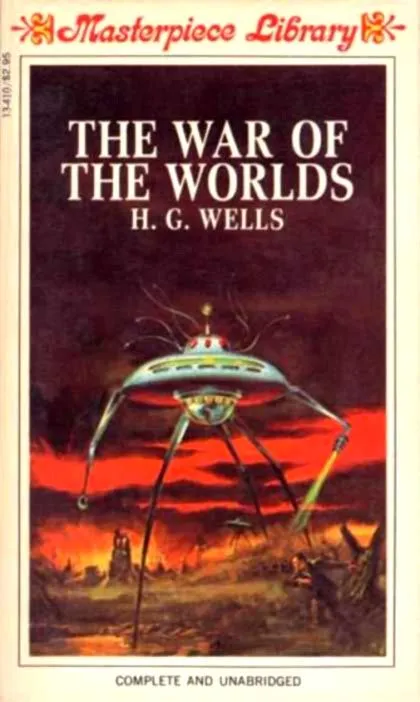
After hearing the story about "The War of The Worlds," it's easy in hindsight to laugh about how people acted crazy over such a silly one-hour broadcast, but that's only because you are already privy to the fact that there was never an alien invasion since the beginning of the story. The people who witnessed it firsthand however, might have felt differently. See, the mind is very mischievous, in the sense that, it will direct your attention to things that will confirm your belief in something.
If it happens to be a particularly dangerous "something" than you’re likely to pick up on more details that feed into that belief since it might be information that could save your life. If you started believing that there was an actual threat, then it won’t matter how much sense the situation makes at that time because you wouldn’t have time to assess the blurry details. What you believe can change what you literally see and hear because the sub-conscience mind is always on overdrive, trying to assimilate information to make sense of your reality and the meaning behind it all. This chapter is intended to demonstrate how a point of view is more than just an opinion and how exactly your mind thinks in terms of what it sees. In addition, it will cover how you can communicate with your sub-conscience in a way that it understands, instead of stabbing yourself in the foot and then wondering why you’re bleeding.

Thanks for Reading and Keep Steeming!